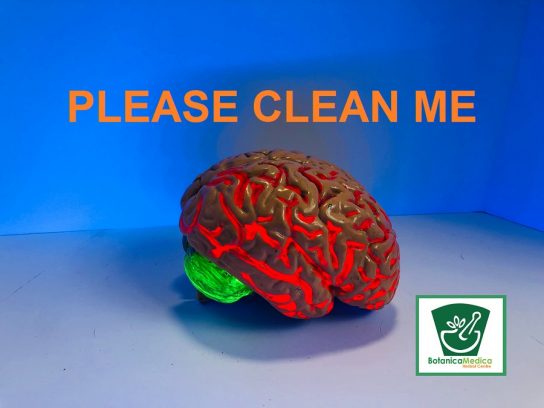
Amazing discoveries about the brain are helping us to understand the importance of sleep in maintaining brain health. We can thank Professor Maiken Nedergaard for furthering our knowledge in this area due to her discovery of the glymphatic system in 2013.
So, what is the glymphatic system? In a nutshell, it is the brain’s waste clearance system or lymphatic system. It clears out waste products or by-products from our brain that build up as a result of normal during daily activity.
When the glymphatic system does not work well there can be a build-up of waste products which are toxic to the brain and pressure of fluids within the brain may also be affected. Researchers are now linking impaired glymphatic system function with a variety of neurodegenerative disorders including Alzheimer’s, dementia, Parkinson’s, migraines and a variety of mental health disorders.
Recent research shows that the glymphatic system is activated by a specific type of non-REM deep-wave sleep and it is only during this type of sleep that the system opens and dumps toxins from the brain.
The important take-home message: You need deep sleep to keep your brain healthy.
Before you go reaching for the sleeping pills or a glass of wine to send you to snooze land, you should know that although some substances might help you get to sleep, they actually impair your quality of sleep, meaning you may not reach the state of deep-wave sleep required to activate the glymphatic system and clean your brain.
This is one of the reasons our practitioners are so focussed on ensuring you have enough good-quality sleep. There are many factors that can contribute to poor sleep including hormonal imbalances, stress, poor sleep hygiene, excess weight, nutritional deficiencies, and mental health disorders.
We will talk about natural ways to improve sleep in part two of this article.
If you’re curious about the glymphatic system, you might like to check out Professor Maiken Nedergaard’s lecture on youtube: https://www.youtube.com/watch?v=V1tL-OCwX_A
By Rachel Harvey, Naturopath and Herbalist at Botanica Medica Herbal Centre
References
Rasmussen, Martin & Mestre, Humberto & Nedergaard, Maiken. (2018). The glymphatic pathway in neurological disorders. The Lancet Neurology. 17. 1016-1024. 10.1016/S1474-4422(18)30318-1.
Jessen NA, Munk AS, Lundgaard I, Nedergaard M. The Glymphatic System: A Beginner’s Guide. Neurochem Res. 2015;40(12):2583–2599. doi:10.1007/s11064-015-1581-6
Xie et al. Sleep initiated fluid flux drives metabolite clearance from the adult brain. Science, October 18, 2013. DOI: 10.1126/science.1241224
Iliff JJ, Wang M, Liao Y, et al. A paravascular pathway facilitates CSF flow through the brain parenchyma and the clearance of interstitial solutes, including amyloid β. Sci Transl Med. 2012;4(147):147ra111. doi:10.1126/scitranslmed.3003748
Aaron J. Schain, Agustin Melo-Carrillo, Andrew M. Strassman and Rami Burstein. Cortical Spreading Depression Closes Paravascular Space and Impairs Glymphatic Flow: Implications for Migraine Headache. Journal of Neuroscience 15 March 2017, 37 (11) 2904-2915; DOI: https://doi.org/10.1523/JNEUROSCI.3390-16.2017
https://en.wikipedia.org/wiki/Maiken_Nedergaard
08 8271 1827
info@botanicamedica.com.au

Recent Comments